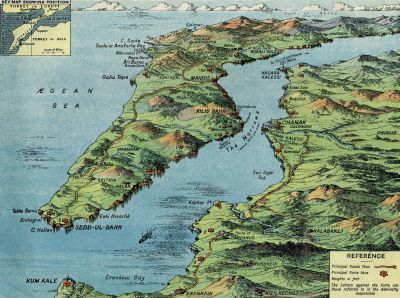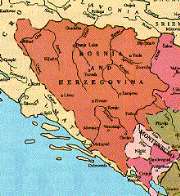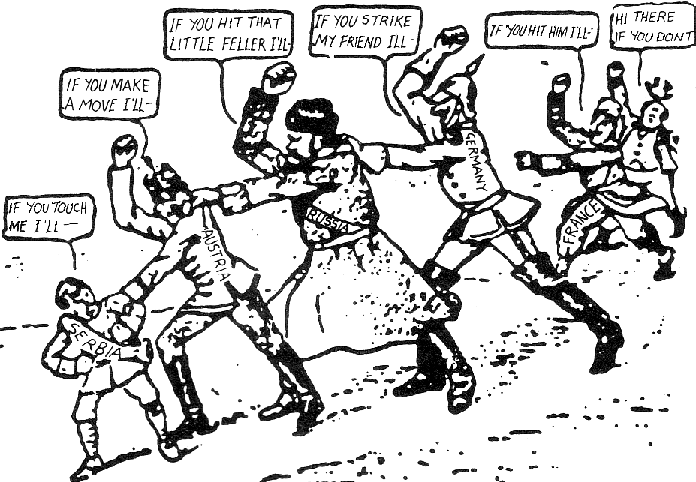Hi Viewers,
In the last post we discussed about the starting events of the First World War. After reading this post the picture of the First World War will become more clearer to you. Here discussed are the main events of the year 1915. The trench warfare in the First World War was a major tactic and was very effective for both the powers. Trench lines were created and acted as a great barrier towards advancements. Trenches basically served the purpose of defending a territory and was thus a defense tactic. These lines were manned 24/7 during the wars. These even played a vital role in the Second World War, but we will discuss that later.
Now, as the war continued the several attempts were made to break the trench lines. The Germans attacked at Ypres, the British attacked at Neuve Chapelle and Loos and the French at Champagne. Many attacks like these failed until the year 1918. There were many difficulties of the trench warfare.
This campaign turned out to be a total failure. The first attempt was made in March 1915 which was an Anglo-French Naval attack but was compromised because the ships ran into a series of mines and the advantage of a surprise attack was lost. Later on when the British attempted landings at the tip of the Gallipoli peninsula in April 1915, the Turks had already strengthen their defenses and therefore further advancements could not be made. More further landings by the Australian and New Zealand troops in the Anzacs during the month of April and by British troops in August were both useless because the positions captured were held with utmost difficulties and thus the entire force was withdrawn in the month of December. The consequences of this campaign were serious because the hopes helping the Russians were through the Black Sea were lost. This made Bulgaria to join the Central Powers. A Franco-British force landed at Salonika in neutral Greece to relieve Serbia but it was already too late because it was Serbia was already overrun by the Bulgarians and Germans. In December a British force was sent to protect the oil interests of the Anglo-Persian against the possible attack of the Turkish became bogged down in Mesopotamia and as it approached Bagdad it was besieged by the Turks at Kul-el-Amara from December 1915 until March 1916, when it was forced to surrender.
Italy wanted to seize the Austria's Italian-speaking province as well as the territory along the eastern shore of the Adriactic Sea. Thus a secret treaty was signed in London in which the Allies promised the territory of Trentino, the South Tyrol, Istria, Trieste, part of Dalmatia, Adalia, some islands in the Aegean Sea and a protectorate over Albania to Italy. The Allies did this because the hoped that by keeping thousands of Austrian troops occupied, the Italians would relieve pressure on the Russians but the Italians made a little progress and their efforts made no difference to the eventual defeat of the Russians, thus the year 1915 was not a good year for the Allies.
This is all for this post and in the next post we will be talking about the great battles of Verdun and Somme. We will also discuss about the War at Sea, the Battle of Jutland and the Submarine Warfare.
Please do not forget to Comment and Share.
Thank You.
In the last post we discussed about the starting events of the First World War. After reading this post the picture of the First World War will become more clearer to you. Here discussed are the main events of the year 1915. The trench warfare in the First World War was a major tactic and was very effective for both the powers. Trench lines were created and acted as a great barrier towards advancements. Trenches basically served the purpose of defending a territory and was thus a defense tactic. These lines were manned 24/7 during the wars. These even played a vital role in the Second World War, but we will discuss that later.
 |
| Diagram of a Trench |
- A quick surprise attack was quite impossible because of the availability of barbed wire on no man's land and it had to be cleared by artillery bombardment before an attack;
- Observation balloons and reconnaissance aircraft could spot troops before hand;
- A frontal attack was suicide because of the increased fire power the machine guns and magazine rifles;
- Even after the capturing of a trench line advancement was difficult because the ground ahead had been churned up by artillery barrages and more machine guns were always waiting;
- And after the capturing of a trench the ground was very difficult to defend because it formed a bulge in the (salient) in the trench lines and the flanks of the salients were vulnerable to attack and the troops could be surrounded and cut off;
- A new trick used by the Germans at Ypres was the usage of poison gas but when the direction of the wind changed the gas flew back to there own lines and also when the Allies released some gas of there own the Germans suffered more casualties than the Allies.
On the eastern front the fortunes of the Russians were mixed because they had mostly succeeded against Austria but whenever they met the Germans they faced defeat who had captured Poland and Warsaw. The Turkish blockade of the Dardanelles was beginning to hamper the Russian who were already running short of arms and ammunitions. The Gallipoli campaign was launched to counter this blockade so than the Russian's supply route could come back to action. This idea was strongly pressed by Winston Churchill ( First Lord of the Admiralty ). The Turks were considered the weakest of the Central powers because of their unstable government.
 |
| British Forces led by Turks at Kul-el-Amara |
This is all for this post and in the next post we will be talking about the great battles of Verdun and Somme. We will also discuss about the War at Sea, the Battle of Jutland and the Submarine Warfare.
Please do not forget to Comment and Share.
Thank You.








